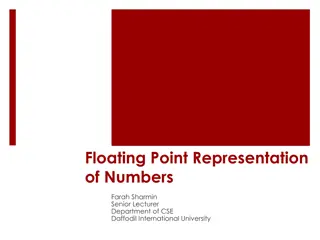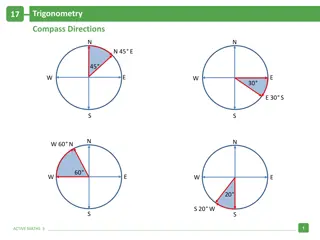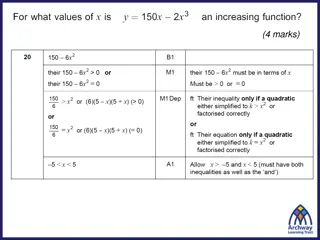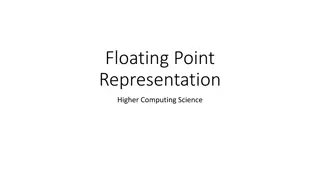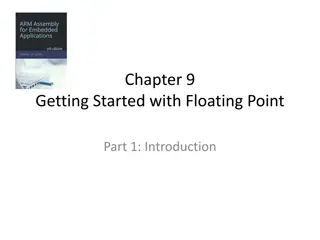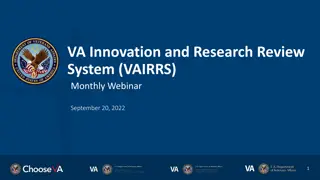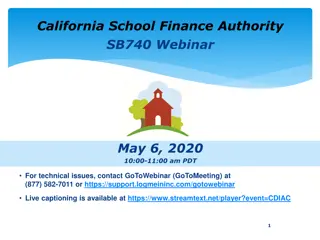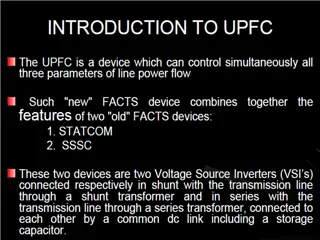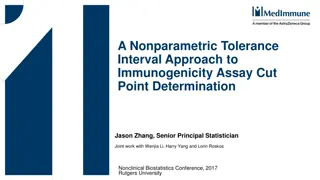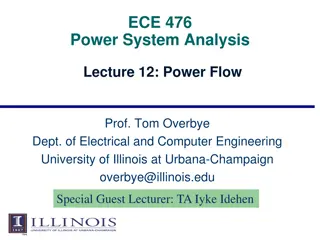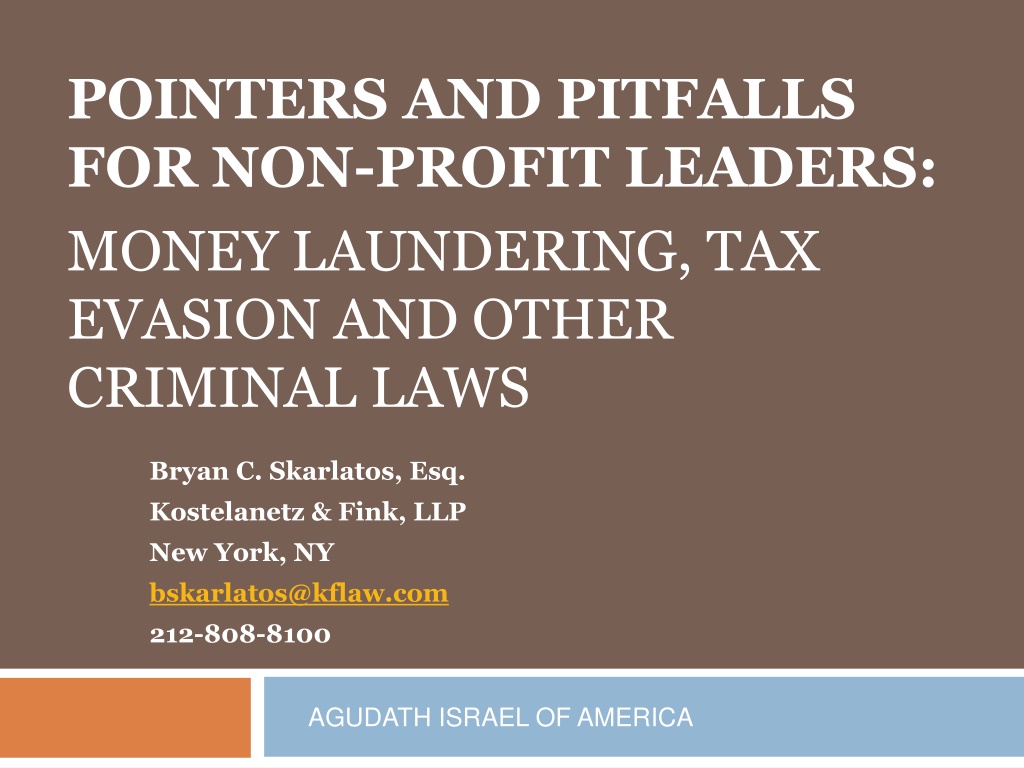
Pitfalls for Non-Profit Leaders in Financial Transactions
Explore the pitfalls non-profit leaders face in financial transactions, including money laundering, tax evasion, and criminal laws. Learn about common situations and legal implications surrounding donations, loans, and reporting requirements. Stay informed to protect your organization and maintain compliance with the law.
Download Presentation

Please find below an Image/Link to download the presentation.
The content on the website is provided AS IS for your information and personal use only. It may not be sold, licensed, or shared on other websites without obtaining consent from the author. If you encounter any issues during the download, it is possible that the publisher has removed the file from their server.
You are allowed to download the files provided on this website for personal or commercial use, subject to the condition that they are used lawfully. All files are the property of their respective owners.
The content on the website is provided AS IS for your information and personal use only. It may not be sold, licensed, or shared on other websites without obtaining consent from the author.
E N D
Presentation Transcript
POINTERS AND PITFALLS FOR NON-PROFIT LEADERS: A MONEY LAUNDERING, TAX EVASION AND OTHER CRIMINAL LAWS Bryan C. Skarlatos, Esq. Kostelanetz & Fink, LLP New York, NY bskarlatos@kflaw.com 212-808-8100 AGUDATH ISRAEL OF AMERICA
Some Common Situations 2 You are an executive director of a non-profit (charity/religious school/synagogue) and someone approaches you with the following: I would like to make a donation and get a receipt for the full amount, but I want X% back in cash I would like to donate these rare coins but I need an acknowledgment showing a $50,000 value I am being audited, and I need you to write a receipt for me claiming I made a donation of X to your institution (even though that never happened), Or, I will make the donation now, but I need you to date the receipt as if I made the donation in 2015 I have been a big donor to your institution and now I need a loan from your institution s charity fund to make an elaborate wedding for my child. I may or may not end up paying it back I would like you to accept this bag containing $20k in cash as a loan. I don t need a receipt, but when I need money, I need you to write a check to me I would like you to accept this double endorsed check as a donation, i.e. check written to someone else, who endorsed it to me, and now I am endorsing it to the institution. I may need a loan from you later I would like you to cash this check for me
Money Laundering 3 18 USC 1957 Essentially prohibits a person or entity from engaging in a monetary transaction of more than $10,000 with the proceeds of a specified unlawful activity if the person or entity knows (or has strong reason to know) the money is dirty 10 year felony plus forfeiture Just depositing the proceeds of illegal activity into a bank can be sufficient 18 USC 1956 can apply to amounts less than $10,000
Currency Transaction Reporting Requirements 4 Currency Transaction Reports More than $10,000 of legal tender (not checks) into or out of financial institution Bank, casino, broker dealer, money transmitting business Report of Currency Received in a Trade or Business Form 8300 More than $10,000 of legal tender received in a trade or business
Currency Transaction Reporting Requirements 5 Currency and Monetary Instrument Report CMIR More than $10,000 of currency or monetary instruments into or out of the country Legal tender, travelers checks, bearer instruments, including checks made out to cash or with payee blank Report of Foreign Financial Account FBAR Financial interest in or signature or other authority over foreign financial account(s) with more than $10,000 Anti-Structuring Laws cannot structure transactions to avoid these reporting requirements
Common Criminal Tax Penalties 6 IRC 7201 Tax Evasion IRC 7206(1) Filing a False Return IRC 7206(2) Aiding or Assisting the Filing of a False return IRC 7212 Any Attempt to Interfere with the Administration of the Internal Revenue laws IRC 7216 Disclosure or use of information by preparers of returns 18 USC 371 Conspiracy 18 USC 1001 False statement to a federal official
Difference Between a Civil Violation and Criminal Violation 7 Three Main Differences: State of Mind What did you know or what should you have known about the transaction? Burden of Proof Government must prove the state of mind beyond a reasonable doubt Consequences Money vs Incarceration
Willfulness is the Key to Tax Fraud 8 The 75% civil fraud penalty requires willfulness All of the criminal tax statutes require some form of willfulness Differences between civil fraud and criminal fraud Consequences Money vs. incarceration Statutes of limitations Unlimited vs. six years Burden of proof Clear and convincing vs. beyond a reasonable doubt
Is Ignorance Of The Law A Defense To Tax Penalties? 9
But The Tax Law Is So Confusing That Ignorance Can Be A Defense 10
Willfulness Is Subjective 11 For purposes of criminal penalties, willfulness is defined as the intentional violation of a known legal duty. E.g., United State v. Pomponio, 429 U.S. 10, 12 (1976). The test for willfulness is subjective, rather than objective, and a defendant who honestly believed that his or her conduct was lawful is not guilty, no matter how unreasonable the belief may be. E.g., Cheek v. United States, 498 US 192 (1991).
How Can The IRS Prove A Subjective State Of Mind? 12
Circumstantial Evidence: Like Tracks In The Snow 13
Circumstantial Evidence of Willfulness 14 a/k/a Badges of fraud Repeated failure to report income or pay tax Serial mistakes Attempts to confuse, conceal or overly advocate False invoices or other documents Destruction of records Failure to produce damaging documents or information Overly complex structures or arrangement with no legitimate business purpose Off-books bank accounts Use of pseudonyms or fake names Lying or excessive delaying during an audit Admissions Double set of books Incriminating e-mails, notes or statements to witnesses 31
How Do Courts Apply Willful Blindness? 17 Deliberate ignorance and positive knowledge are equally culpable if the person us aware of the high probability of the existence of the fact in question. United States v. Stadtmauer, 620 F.3d 238 (3d Cir. 2010). - The Court held that the government need not present direct evidence of conscious avoidance to justify a willful blindness instruction. Although the defendant spent very little time reviewing the tax returns prepared by the accountants, there was sufficient evidence to justify the willful blindness charge because the defendant was intimately involved with the operations of the partnerships and was aware of how the partnerships characterized capital expenditures, charitable contributions, gift and entertainment expenses, and non-property expenses in the general ledger and financial statements. United States v. Williams, 489 Fed. Appx. 655 (4th Cir. 2012) - Taxpayer checked no on his tax return as to whether he had an interest in a foreign bank account even though he did have such an interest. Williams argued that he never looked at the language of the return and made sure the accountant s numbers on the tax return were correct. The court held that a person who signs a tax return has constructive knowledge of its contents and Williams s signature was prima facie evidence that he knew the contents of the return.
Broad Scope of Potential Criminal Liability! 18
Who Can be Included in a Potential Conspiracy? 19 Participating in a phone call or sending an e-mail that is in furtherance of a plan to impair or impede the IRS Providing comments on a letter that later turns out to contain a false statement Distributing documents during a meeting and then taking them back so that the IRS won t get them in an audit Making arguments about the purpose for a transaction or some other fact during an audit if it later turns out that the fact was not true
QUESTIONS? 20




